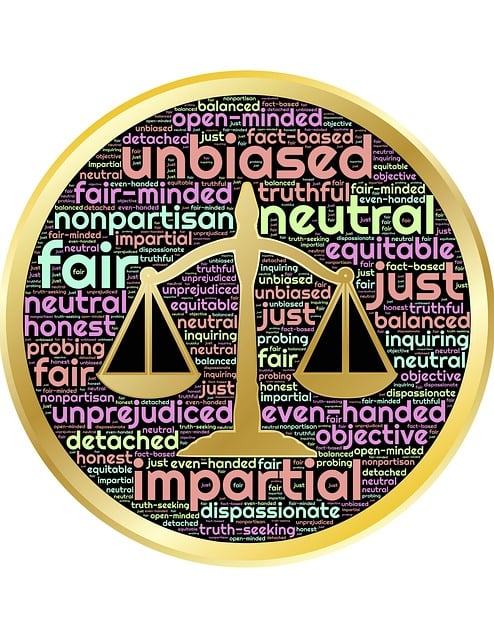Environmental crime trials face challenges due to varying Criminal Procedure Laws by state, impacting evidence handling, legal strategies, and jury instructions. Understanding these differences is vital for achieving fair outcomes, with defense teams tailoring approaches to navigate complexities in white-collar defense styles, aiming for just resolutions despite eco-crime's diverse nature and lack of uniform definitions.
Environmental Crime Trials: Uncovering the Legal Landscape of Eco-offenses
This comprehensive guide explores the intricate world of environmental crime trials, shedding light on the legal framework that shapes these unique cases. With a focus on state variations in criminal procedure laws, we delve into their implications for environmental prosecutions. Through a comparative analysis, we uncover challenges and potential solutions, providing insights into navigating the complexities of eco-crimes across different jurisdictions, especially highlighting the impact of Criminal Procedure Laws by State Variations.
- Understanding Environmental Crime Trials: A Legal Framework
- State Variations in Criminal Procedure Laws: Implications for Environmental Cases
- Challenges and Solutions in Prosecuting Eco-crimes: A Comparative Analysis
Understanding Environmental Crime Trials: A Legal Framework

Environmental Crime Trials are governed by a complex interplay of federal and state laws, reflecting the diverse nature of ecological offenses. Understanding this legal framework is crucial for both corporate and individual clients facing such charges. The Criminal Procedure Laws vary significantly across the country, necessitating tailored strategies for effective defense. These trials often involve intricate scientific evidence and technical interpretations, demanding a deep understanding of environmental regulations specific to each jurisdiction.
Across the nation, state-level variations in criminal procedure laws further complicate matters. This heterogeneity presents challenges and opportunities for legal teams. They must navigate not only the complexities of environmental crimes but also the nuances of local legal codes, potentially influencing key aspects like admissibility of evidence, procedural rules, and even sentencing guidelines. Such intricacies require agile and well-informed defense strategies to ensure a fair outcome in jury trials.
State Variations in Criminal Procedure Laws: Implications for Environmental Cases

The landscape of environmental crime trials is significantly influenced by variations in Criminal Procedure Laws across different states. These state-level differences can have profound implications for how environmental cases are handled, from pre-trial discovery processes to evidentiary rules and jury instructions. Understanding these nuances is crucial for both prosecutors and defenders aiming to achieve extraordinary results in winning challenging defense verdicts. Each state’s unique legal framework shapes the strategies employed by legal teams, potentially leading to varied outcomes within similar environmental transgressions.
Navigating these variations requires legal professionals to adapt their approaches accordingly, ensuring that respective business interests are protected while upholding the integrity of environmental justice. For instance, some states may have more stringent rules on expert testimony, impacting how scientific evidence is presented in court. Others might prioritize public participation in the trial process, enabling a more transparent and engaged approach to environmental litigation. Staying informed about these state-specific considerations can empower legal advocates to build robust cases, ultimately contributing to achieving just resolutions for environmental crimes.
Challenges and Solutions in Prosecuting Eco-crimes: A Comparative Analysis

Prosecuting environmental crimes presents unique challenges, often stemming from complex legal frameworks and state-specific Criminal Procedure Laws. The diverse nature of eco-crimes, ranging from pollution to habitat destruction, demands a flexible approach in criminal justice systems. One significant hurdle is the lack of uniform definitions for many environmental offenses, leading to inconsistent prosecution strategies across jurisdictions. This variation in laws by state can make it difficult to secure indictments and achieve consistent justice.
Addressing these challenges requires a comprehensive understanding of local legislation and adapting effective strategies accordingly. White-collar defense techniques, traditionally used in financial cases, can be employed to avoid indictment in environmental crime trials. Through meticulous legal arguments and negotiations, defense attorneys can help defendants reach agreements that result in achieving extraordinary results while also addressing the underlying environmental issues.
Environmental crime trials, governed by a evolving legal framework, present unique challenges due to state variations in Criminal Procedure Laws. These differences can significantly impact the prosecution of eco-crimes, creating both obstacles and opportunities for justice. By examining these variations and comparing successful strategies from around the globe, we can enhance the effectiveness of environmental case management. Understanding and addressing these complexities are crucial steps towards ensuring accountability and safeguarding our planet.






